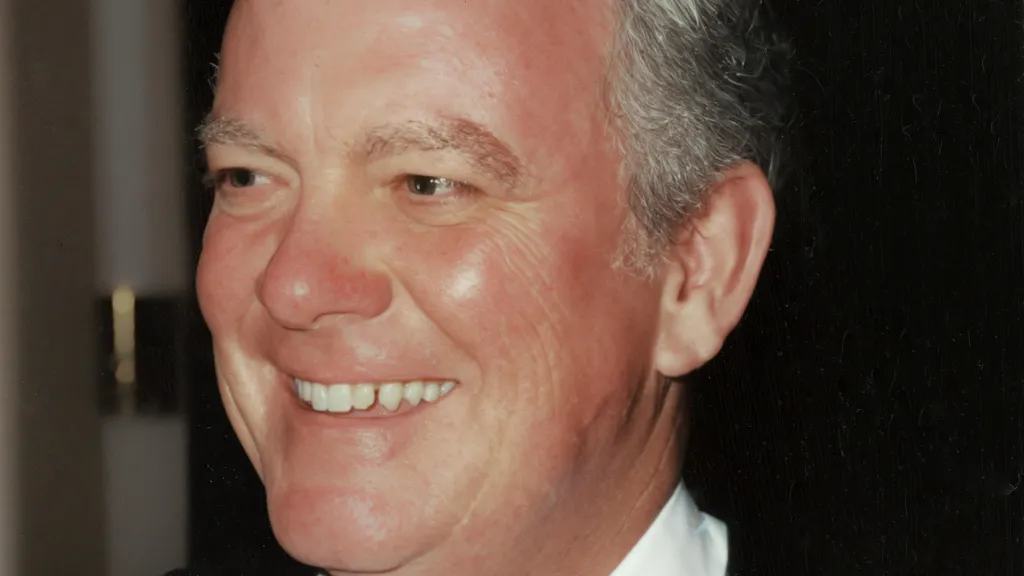
For 50 years, Bert Atwater Getz Sr. worked for and then led his family’s Globe Corporation — a diversified manufacturing, real estate and banking firm — and after amassing a 520-acre Libertyville farm called Stonehenge, Getz opened the Merit Club, a championship golf course, on the property in 1992.
Getz, 88, died of natural causes on Aug. 31 at his home on Stonehenge Farm, said his son, Bert Jr. He had divided his time between Libertyville and Scottsdale, Arizona, since 1970, and previously had homes in Winnetka and Northfield.
Getz was born in Chicago in 1937 and grew up in Wilmette and Winnetka, while also spending summers in Lake Geneva, Wisconsin. After attending the North Shore Country Day School, he attended boarding school at Lawrenceville School in New Jersey, graduating in 1955. Getz then got a bachelor’s degree in business from the University of Michigan in 1959.
Getz was the grandson of George Fulmer Getz, who in 1901 founded the family’s Globe Corporation, which started as a coal distribution business that carted coal from docks on the Chicago River to buildings in Chicago.
In 1967, Getz and his wife bought Stonehenge Farm in Libertyville from the estate of Rehabilitation Institute of Chicago benefactor Bertha Brown. Beginning in 1970, Getz and his family spent the school year in Arizona, where they had a home, and summers and holidays in Libertyville.
Right after college, Getz began working for his family’s company, serving as its president from 1974 until 1999 and remaining chairman of the board until 2024. As the firm diversified, Getz was particularly involved on the banking side. He was a major investor in The Arizona Bank and also served as a director of both Security Pacific Bank and the Continental Bank. In the 1980s, President Ronald Reagan appointed Getz to the board of the Federal National Mortgage Association.
Getz invested in some of the funds managed by the Chicago-based private equity firm 1st & Main Growth Partners, which focuses on U.S. financial services firms and financial technology companies.
“He understood how to integrate his bank into the business fabric of his community,” said Charles Moore of 1st & Main. “He was really good with people and with clients and with customers. He was a good risk-taker and he understood where opportunity was.”
For two decades, Getz had Aberdeen Angus cattle grazing on Stonehenge Farm. After exiting what he said was an increasingly difficult cattle business in the late 1980s, Getz wanted to ensure that the property would remain intact and not subdivided into a housing development.
“Developers were after me to sell for years and some thought I was crazy not to,” Getz told the Tribune’s Rick Kogan in 2000. “But they wanted to put 1,500 homes on this place. I love open space and land. I didn’t want to see this turned into rooftops.”
So Getz decided to build a golf course on some of the land.
“I had more than 500 acres by then and I told the architect, ‘Just take as much land as you need,’” Getz told the Tribune in 2000. “Embellish the land. Build a fine golf course.”
The Merit Club, which the Getz family controls to this day, was built on 320 acres and was designed by golf course architect Robert Lohmann in collaboration with golf professional Ed Oldfield. The club was named by Golf Digest as one of the nation’s top five new courses in 1993.
Don Pieper, the Merit Club’s general manager, originally was hired by Oldfield as the Merit club’s golf pro. He eventually was promoted to be its general manager.
“(Getz) could be the most humble and caring man that I’ve ever met,” Pieper said. “He really enjoyed the people who enjoyed the game. … It didn’t matter what corner of the globe you came from. If you loved golf, you could be friends.”
Through a separate entity from Globe Corporation called Globe Illinois, Getz developed the Reserve at the Merit Club, a subdivision on another 100 acres of Stonehenge Farm. The Getz family retained the remaining 90 acres.
Outside of work, Getz had been deeply involved in the Mayo Clinic’s facility in Scottsdale, Arizona. He helped the the clinic identify a site, prospective donors and prospective board members for its location in Scottsdale. He eventually served two terms as chairman of the board of the Mayo Foundation, which in effect was chairing the board of the Mayo Clinic.
“Everything he got involved in, he rose to the top,” said retired Tribune Co. Chairman and CEO John Madigan, who was Getz’s college roommate at the University of Michigan. “Being chairman of the Mayo Clinic probably was the most visible thing, and he did such a great job there.”
Madigan also recalled working with Getz while Madigan was an investment banker and Getz was a major investor in The Arizona Bank, which Security Pacific Bank — then, the nation’s seventh-largest bank — acquired in 1985 for $480 million.
“What he did with the Arizona Bank was legendary,” Madigan said. “He took it from a modest bank in Phoenix to the No. 3 bank in Arizona, and he engineered a growth path for that bank that was extraordinary. And then at just the right time, he merged it with Security Pacific. He had really good judgment, and he knew when to do things and when not to do things.”
Getz also served on the board of the Rodel Foundation, which works to improve public education systems in Arizona and Delaware, as well as improving government functions.
“He was a fabulous American patriot, and generous to a fault,” said Don Budinger, the Rodel Foundation’s chairman and founding director. “He never wanted to take credit for himself or what he did. He just gave, gave and gave and never wanted any credit. Given the condition we’re living in the world right now, it’s extraordinary what Bert Getz did.”
Getz also served as chairman of the Lawrenceville School, a director of the Indiana University Foundation, on the dean’s council of Arizona State University’s business school and on the board of visitors of the University of Michigan Ross School of Business.
Getz enjoyed following the Chicago Cubs and the University of Michigan athletics, as well as playing sudoku and backgammon, traveling the world with his wife and spending time with his grandchildren. A six-week trip to Antarctica sparked a lifelong interest in penguins, and Getz gave an annual presentation to students at a Phoenix day school about his study of penguins and his time in Antarctica.
A daughter, Sandra Lynn Getz-Riley, died in 2018. In addition to his son, Getz is survived by his wife of 67 years, Sandra; another son, George; and seven grandchildren.
A memorial service will take place at 11 a.m on Sept. 26 at St. James the Less Episcopal Church, 550 Sunset Ridge Road, Northfield.
Bob Goldsborough is a freelance reporter.



